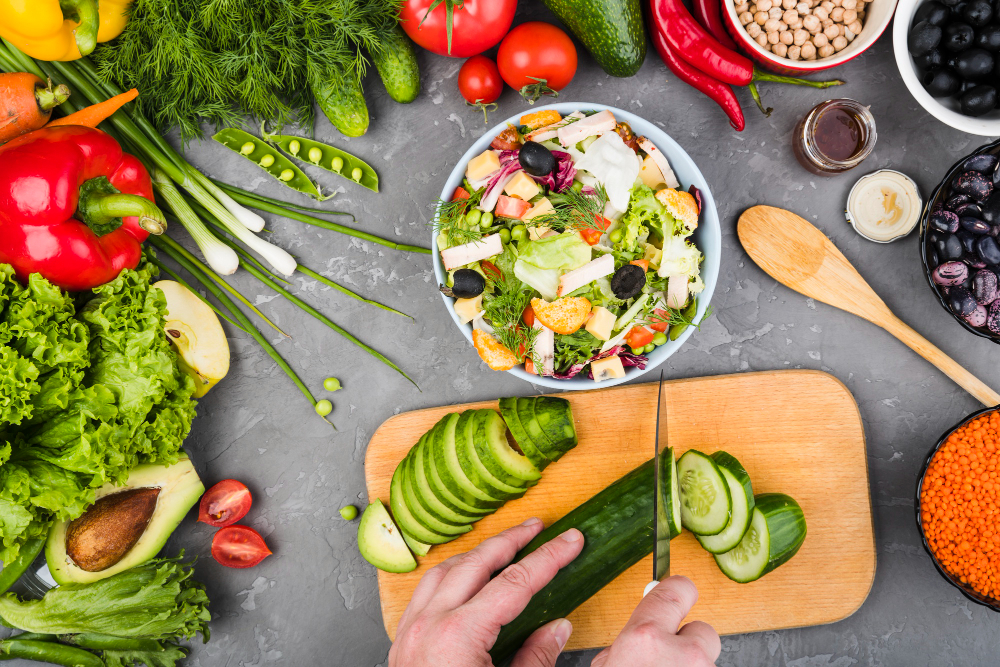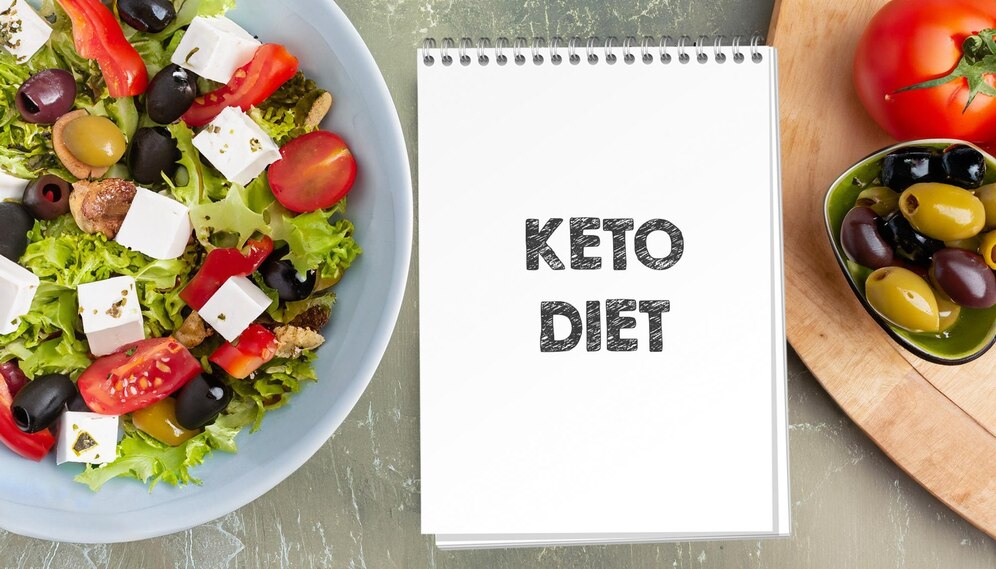Veganism is a lifestyle and dietary choice that has gained significant popularity in recent years. More and more people are choosing to adopt a vegan diet for various reasons, including ethical concerns, health benefits, and environmental sustainability. In this comprehensive guide, we will explore everything you need to know about the vegan diet, including its definition, history, types, nutritional benefits, common foods, meal planning, and much more.
Table of Contents
What is a Vegan Diet?
A vegan diet is a plant-based diet that excludes all animal products, including meat, dairy, eggs, and honey. Vegans also avoid using animal-derived products such as leather, fur, and silk. The key principles behind veganism are rooted in compassion for animals, environmental conservation, and promoting a healthier lifestyle.
History of Veganism
The concept of veganism has its roots in ancient Indian and Greek civilizations, where vegetarianism was practiced for ethical and spiritual reasons. The term “vegan” was coined in 1944 by Donald Watson, founder of the Vegan Society in the UK. Since then, the vegan movement has evolved and gained momentum worldwide.
Types of Vegan Diets
There are several types of vegan diets, including:
- Whole-food vegan diet: Focuses on whole, unprocessed foods such as fruits, vegetables, whole grains, nuts, and seeds.
- Raw vegan diet: Consists of raw, uncooked foods that are not heated above 118°F (48°C) to preserve their natural enzymes and nutrients.
- Junk food vegan diet: Includes processed vegan foods such as vegan burgers, fries, and desserts, which are often high in salt, sugar, and fat.
Nutritional Benefits of a Vegan Diet
A vegan diet is rich in fiber, antioxidants, and essential nutrients, and has been associated with a lower risk of heart disease, cancer, and other chronic illnesses. By focusing on plant-based foods, vegans often consume more vitamins, minerals, and phytochemicals that promote overall health and well-being.
Common Vegan Foods
Some common vegan foods include:
- Fruits and vegetables: Apples, bananas, spinach, kale, broccoli
- Whole grains: Brown rice, quinoa, oats, barley
- Legumes and beans: Chickpeas, lentils, black beans, kidney beans
- Nuts and seeds: Almonds, walnuts, chia seeds, flaxseeds
Protein Sources for Vegans
Contrary to popular belief, it is possible to obtain enough protein on a vegan diet. Some sources of plant-based protein include:
- Legumes (beans, lentils, chickpeas)
- Tofu and tempeh
- Quinoa and other grains
- Nuts and seeds
Vitamins and Minerals for Vegans
While a vegan diet can provide most essential nutrients, there are some key vitamins and minerals that vegans should pay attention to, including:
- Vitamin B12: Found in fortified foods or supplements
- Iron: Found in legumes, whole grains, and leafy greens
- Calcium: Found in fortified plant milks, tofu, and leafy greens
- Omega-3 fatty acids: Found in flaxseeds, chia seeds, walnuts, and algae supplements
Meal Planning on a Vegan Diet
For vegans, it’s important to maintain a balanced diet that includes a variety of foods in their meals. Some of the best options to consider include fruits, vegetables, whole grains, legumes, nuts, and seeds. By planning their meals, vegans can ensure that they are meeting their nutritional needs and avoiding any potential deficiencies.
Eating Out as a Vegan
For vegans, dining out can sometimes be a daunting task. However, with a few helpful tips and tricks, it can turn into a hassle-free and delightful experience. One of the best ways to ensure a smooth dining experience is by researching restaurants that either offer vegan options or are willing to cater to dietary restrictions.
Additionally, vegans can browse through online menus or call ahead to inquire about vegan-friendly dishes and make reservations accordingly. By following these simple strategies, vegans can enjoy dining out just like everyone else.
Vegan Diet to Lose Weight
It’s not uncommon for people to opt for a vegan diet as a weight loss strategy. The reason is, that plant-based foods typically contain fewer calories and saturated fats than animal-based products. However, it’s crucial to recognize that simply going vegan does not guarantee a healthy diet. As with any weight loss plan, it’s essential to be mindful of the amount of food you consume to achieve successful results.
Common Myths and Misconceptions About Veganism
There are many misunderstandings and false beliefs about veganism, such as worries about getting enough protein, calcium, and other nutrients. However, it’s important to know that a well-planned vegan diet can provide all the necessary nutrients for good health.
Vegans’ Diet for Good Health
Following a vegan diet can have numerous health benefits, however, it’s essential to be aware of the nutrients that may be lacking in the vegan diet, such as vitamin B12, iron, and calcium. To avoid a deficiency of these vital nutrients, it is recommended that vegans consume fortified foods, which have been enriched with essential nutrients, or take supplements. This will ensure that vegans meet their daily nutritional requirements and maintain optimal health.
Environmental Impact of a Vegan Diet
Many people opt for a vegan diet due to its significant contribution towards maintaining a healthy environment. Animal agriculture is a major source of greenhouse gas emissions, deforestation, and water pollution, leading to adverse effects on our planet. By consuming plant-based foods, vegans can greatly reduce their carbon footprint and positively impact the environment.
Ethical and Animal Welfare Aspects of Veganism
Veganism is a dietary choice made by many individuals for ethical reasons. The underlying belief is that all living beings possess inherent value and rights. By abstaining from animal products, vegans aim to reduce animal suffering and promote a more compassionate world.
Challenges of Going Vegan
Going vegan can be challenging, especially in a society where meat and dairy products are prevalent. Social challenges, such as dining out with non-vegan friends or attending family gatherings, can be difficult to navigate. Additionally, some people may experience cravings for animal products when first transitioning to a vegan diet.
Tips for Success on a Vegan Diet
To successfully transition to a vegan diet, consider the following tips:
- Gradual transition vs. immediate switch: Some people find it easier to gradually eliminate animal products from their diet, while others prefer to make a clean break.
- Finding support and resources: Joining vegan groups or online communities can provide support and encouragement during the transition.
FAQs About the Vegan Diet
What is the difference between vegan and vegetarian?
Veganism and vegetarianism are two dietary lifestyles that exclude the consumption of meat. However, veganism is a stricter form of vegetarianism that also excludes all animal byproducts, such as dairy, eggs, and honey. In contrast, vegetarians may consume some animal byproducts, depending on their specific dietary preferences.
Can I get enough protein on a vegan diet?
Vegetarians typically follow one of three main types of diets: lacto-ovo vegetarianism, lacto-vegetarianism, or ovo-vegetarianism. Lacto-ovo vegetarians eat both dairy products and eggs, lacto-vegetarians consume dairy products but avoid eggs, and ovo-vegetarians consume eggs but avoid dairy products.
Is it safe for children to be vegan?
Yes, it can be safe for children to follow a vegan diet as long as it is well-planned and balanced. It’s important to ensure that they receive all the necessary nutrients such as protein, iron, calcium, and vitamin B12. Parents should work with a registered dietitian to ensure their child’s nutritional needs are being met.
Can I build muscle on a vegan diet?
Yes, it is possible to build muscle on a vegan diet. Plant-based protein sources such as beans, lentils, tofu, tempeh, nuts, and seeds can provide the necessary protein. It’s important to also consume enough calories and engage in strength training exercises to build muscle. Working with a registered dietitian can also help ensure that you are meeting your nutritional needs.
Conclusion
In conclusion, the vegan diet offers numerous health benefits, environmental advantages, and ethical considerations. Whether you choose to go vegan for health, environmental, or ethical reasons, it’s important to educate yourself about nutrition and plan your meals carefully to ensure you meet your dietary needs.
Additional Resources
For more information about veganism, consider exploring the following resources:
- Books: “Eating Animals” by Jonathan Safran Foer, “The China Study” by T. Colin Campbell
- Websites: Vegan Society (vegansociety.com), PETA (peta.org)
Documentaries: “Forks Over Knives,” “Cowspiracy“








Your article helped me a lot, is there any more related content? Thanks!
I don’t think the title of your article matches the content lol. Just kidding, mainly because I had some doubts after reading the article.
Can you be more specific about the content of your article? After reading it, I still have some doubts. Hope you can help me.
I don’t think the title of your article matches the content lol. Just kidding, mainly because I had some doubts after reading the article.
Your article helped me a lot, is there any more related content? Thanks!
Your point of view caught my eye and was very interesting. Thanks. I have a question for you.
Your article helped me a lot, is there any more related content? Thanks!